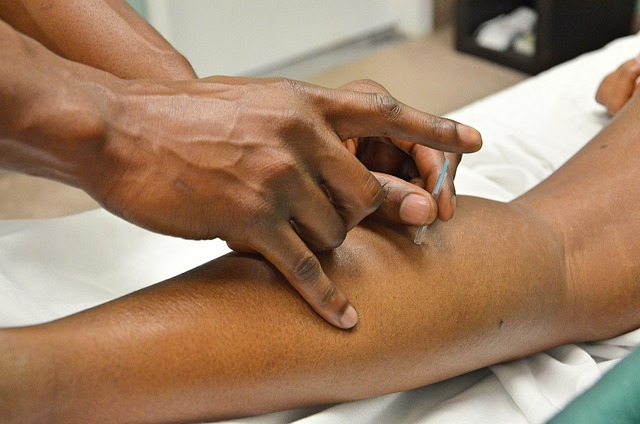Cold water immersion, including ice baths or cold showers, is a powerful tool for reducing stress hormones and promoting hormonal wellness. By briefly exposing yourself to temperatures below 59°F, your body releases cortisol and endorphins, lowering stress levels, improving circulation, and aiding in physical recovery. This natural method effectively manages chronic stress and its associated health issues, making cold water immersion an ideal addition to holistic routines for optimal stress hormone reduction.
“Unleash the power of cold water immersion as a holistic approach to hormonal wellness. This ancient practice, known for its ability to reduce stress and promote mental clarity, is gaining modern popularity. Our article explores how cold plunges can positively influence your hormones, offering a natural remedy for managing stress. We’ll guide you through understanding this therapy’s mechanisms, its benefits, and practical steps to integrate it into your daily routine. Discover the science behind cold water immersion for stress hormone reduction and unlock your body’s innate resilience.”
Understanding Cold Water Immersion and Its Potential Benefits
Cold water immersion, also known as a cold plunge, involves briefly exposing yourself to water temperatures below 59°F (15°C). This practice has gained popularity for its potential health benefits, particularly in stress hormone reduction and overall wellness. When you immerse yourself in cold water, your body responds by releasing cortisol, often referred to as the stress hormone, which can help lower levels over time.
Additionally, cold water immersion triggers a release of endorphins, natural painkillers that promote feelings of well-being and relaxation. It’s not just about the physical sensation; the experience also encourages mental clarity and resilience. Many people incorporate cold plunges into their holistic routines as a way to support hormonal balance, improve circulation, and enhance overall recovery after physical activities.
The Hormonal Impact of Stress and its Connection to Cold Plunges
Chronic stress can wreak havoc on our hormonal balance, leading to imbalances in cortisol, often referred to as the stress hormone. Prolonged elevated cortisol levels can result in a range of health issues. This is where cold water immersion, or cold plunges, come into play as an effective tool for stress reduction and hormonal wellness.
Cold water stimulates the release of endorphins, our body’s natural mood boosters, which can counteract the effects of cortisol. The sudden exposure to cold also triggers a process called ‘cold shock response’, leading to increased norepinephrine levels, a hormone that prepares our bodies for action. This response is temporary and can help regulate stress hormones over time, making cold plunges an excellent addition to holistic hormonal wellness routines for stress hormone reduction.
Integrating Cold Plunges into Your Daily Routine
Integrating cold water immersion into your daily routine can be a powerful tool for managing stress and promoting hormonal balance. Cold plunges, such as taking a quick dip in an ice bath or showering with cold water, have been shown to reduce levels of cortisol, often referred to as the stress hormone. This reduction is significant because chronically elevated cortisol levels are linked to various health issues, including weight gain, insomnia, and impaired immune function.
By exposing your body to cold water, you initiate a stress response that triggers a release of endorphins, known for their mood-boosting effects. This process helps alleviate mental strain and promotes a sense of calm. Additionally, cold water immersion improves blood circulation, enhancing nutrient delivery to muscles and organs, which contributes to overall holistic hormonal wellness.
Best Practices and Tips for Safe and Effective Cold Water Immersions
Engaging in cold water immersions, like cold plunges, can be a powerful tool within holistic hormonal wellness routines. To ensure safety and maximize benefits for stress hormone reduction, adopt best practices such as gradually acclimating your body to colder temperatures. Start with lukewarm water and progressively decrease its temperature over several minutes. This gradual approach allows your body to adjust, reducing the risk of shock or discomfort. Always listen to your body; if you feel any signs of hyperventilation or severe cold, exit the immersion immediately.
Another crucial tip is to limit cold water immersions to short durations, typically no longer than 10-15 minutes for beginners. Prolonged exposure can be stressful for the body, counteracting potential stress hormone reduction benefits. After each session, practice relaxation techniques like deep breathing or meditation to enhance the calming effects of the cold plunge. Consistency is key; incorporating regular cold water immersions into your routine can lead to noticeable improvements in managing stress hormones and overall hormonal balance.
Cold water immersion has emerged as a powerful tool for holistic hormonal wellness, offering significant potential in stress hormone reduction. By integrating this practice into daily routines, individuals can harness the benefits of cold plunges to mitigate stress and its hormonal effects. Remember that consistency and safety are key; follow best practices and tips outlined in this article to ensure effective and enjoyable experiences. Incorporating cold water immersion into your wellness routine could be a game-changer for managing stress and promoting overall balance.
